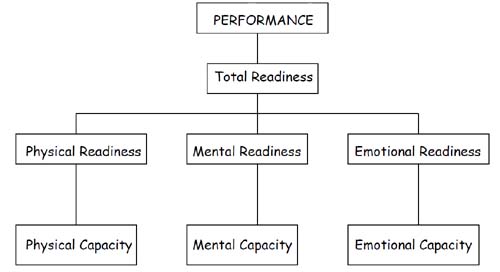 I vår artikkelserie "Mental Skills for Mentors and Referee Instructors" fra den meritterte dommerinstruktøren Alan Richardson fra England bringer vi idag en ny artikkel som har for seg viktigheten av å forberede seg godt mentalt og ikke minst hvordan man skal oppnå og beholde selvkontrollen i kampens mange faser. Serien på 10 artikler fokuserer på hvordan en mentor eller dommerinstruktør bør jobbe med å utvikle dommere, og ikke minst litt om de mentale ferdighetene som da er aktuelle. De fleste bør kunne plukke opp noen gode råd fra Richardsons artikler, både dommere og instruktører, og her kommer den tredje i serien. Dagens fokusområde er: "Managing Mistakes".
I vår artikkelserie "Mental Skills for Mentors and Referee Instructors" fra den meritterte dommerinstruktøren Alan Richardson fra England bringer vi idag en ny artikkel som har for seg viktigheten av å forberede seg godt mentalt og ikke minst hvordan man skal oppnå og beholde selvkontrollen i kampens mange faser. Serien på 10 artikler fokuserer på hvordan en mentor eller dommerinstruktør bør jobbe med å utvikle dommere, og ikke minst litt om de mentale ferdighetene som da er aktuelle. De fleste bør kunne plukke opp noen gode råd fra Richardsons artikler, både dommere og instruktører, og her kommer den tredje i serien. Dagens fokusområde er: "Managing Mistakes".
Part 3: Managing Mistakes
When watching a basketball game as an observer, you are probably the only person not watching the ball. You observe the referees moving on the court, especially their behaviour after making a mistake. Nothing tests an official´s character more than making a clear mistake in front of a large crowd.
It is important that Instructors have prepared officials with a recovery strategy to deal with any negative thoughts after a mistake. Mistakes are part of the game, so preparation for dealing with them should be viewed positively rather than negatively. Everyone connected with the game makes mistakes; players, coaches and officials.
Failure to teach officials how to manage mistakes leaves them without the tools they need to maintain self-control and prevent a decline in performance. Players and coaches often receive technical fouls for over reacting to mistakes. Instructors need to ensure that officials are trained to deal with the emotional pressure in a very objective manner when mistakes occur. It should be a professional issue rather than a personal one.
Managing Anger
In a highly competitive and emotional game like basketball, a certain amount of anger will always be present. Coaches and players often induce anger within their opponents, which creates an emotional surge which officials have to control. Officials can NEVER allow themselves to become angry, no matter what the provocation or pressures.
Anger produces negative effects:
- Loss of focus.
- Loss of self control – making mistakes.
- Loss of concentration – remembering mistakes.
- Loss of respect by participants.
- Loss of friendship and enjoyment.
Role of the Instructor.
Instructors must understand that officials need to maintain emotional control in order to perform to their physical and technical potential. Emotional readiness must be regarded as part of the overall individual preparation for the game.

Instructors must therefore plan training programmes that shape and reinforce positive thinking by officials, creating an emotional state of readiness in order to begin each game in a state of relaxed readiness. Instructors must be willing to deal with and influence all officials under their jurisdiction.
Guidelines for instructors are as follows:
- Improve officials´ awareness of the importance of being emotionally ready to perform.
- Understand that by shaping the thinking of officials, you will influence their emotional states.
- When an official is not performing, examine the links between state of mind, emotions and energy levels.
- Give officials training in techniques for self control. (if possible use a Sports Psychologist).
- Be patient with young and inexperienced officials. Progress takes time.
- Reinforce and reward officials who demonstrate the intelligence to manage themselves emotionally.
- Use video, self-talk and other forms of communication to influence officials´ mental and emotional states.
- Prepare an emotional game plan that reviews an upcoming match and sensitises the officials to likely emotional flash points.
- Be sensitive to the nature and delivery of any pre-game, halftime and/or post-game observations that you may give to officials during training.
- Encourage officials to prepare for and manage the game environment in order minimise distractions and confrontations.
An Instructor must know whether an official can be trusted. The modern basketball official may well have more issues to deal with off the court than on it. Most officials will need a great deal of support and understanding to achieve and maintain the stable state needed for success on the “rollercoaster” of basketball.
Summary:
Instructors, mentors and officials must pay more attention to developing emotional readiness for the game. Self control must be emphasized as a characteristic of excellence. The emotional game plan must include steps to achieve a confident state of mind that will lead to a positive emotional state and high concentration levels. Instructors must teach management of mistakes and anger because they can destroy self control.
An Instructor must become both an effective, sensitive communicator and a powerful, positive role model. Instructor – Official relationships depend on this if the officials are to progress and be successful.
Alan Richardson
